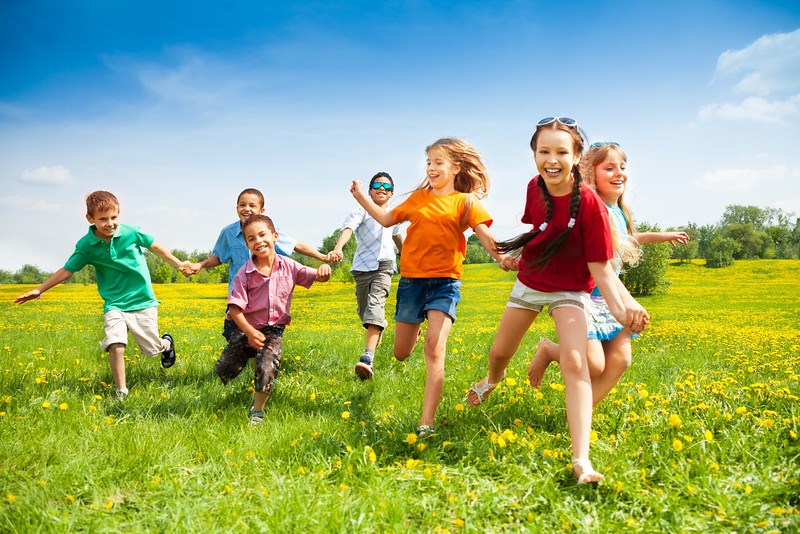Today’s children spend more time in virtual realities than actual reality. They’re more accustomed to computers than to balls.
Growing up in an era of rapid innovation certainly has its perks, but Chauncey Deller, Plano Parks and Recreation supervisor over outdoor recreation, believes these children are also missing out.
“It’s so easy to get caught up in TV and technology,” said Deller. “Too much electronic stimulation can cut into time for other healthy activities.”
According to the National Wildlife Federation, the average American child spends as little as 30 minutes a day in free outdoor play and more than seven hours in front of an electronic screen. Child obesity rates have grown more than 200 percent in the last two decades, and there’s been a significant rise in the prescription of antidepressants and similar drugs to not only adults, but children.
Research published by the American Academy of Pediatrics also links excessive stimulation to decreased attention abilities.
“Most kids have a natural desire to be outdoors and explore,” Deller said. They naturally want to grab a handful of rolly-pollies, run around, or feed ducks at the pond. Deller said it’s important that this desire is encouraged.
“They need to learn to value downtime and leisure—the passive enjoyment of nature,” Deller said.
For Deller, who grew up as an athlete, the outdoors provides an escape.
“It resets me,” Deller said. “There are places in our national parks that you can only get to by foot, and once you get there, you might be the only human for miles. It gives you perspective.” Having to complete tasks without the aid of electronics gives him an appreciation for the ease of modern life as well as a sense of accomplishment, two things he believes others, especially children, can gain from spending time in nature as well.
“If our kids don’t have an appreciation for nature, they aren’t going to become good stewards of the environment as adults,” he said, stressing that not everything is sustainable.
But it’s not all about making sure society doesn’t deplete its oxygen levels needed for survival. The benefits of spending time outdoors are vast. In the midst of being outdoors, children learn things they typically can’t in the fourwall classroom.
“For some families, it’s about parents sharing experiences they had as children with their own children,” Deller said. This strengthens relational bonds and teaches children about their history. Spending time outdoors also increases an individual’s Vitamin D, which helps to improve mood and protect against bone weakness, diabetes and heart problems.
Additionally, the National Wildlife Federation reports that students at schools with outdoor education programs tend to make higher scores on standardized testing. Deller said outdoor play also helps children develop necessary social skills.
At Plano Parks and Recreation, Deller’s summer programs offer an array of opportunities for children’s personal growth and are a great way to get kids excited about getting off the couch.
One of his favorite summer courses offers children (and adults) the opportunity to act as contributors to a Cornell University research study.
“I think the ladybug hunt is a great educational experience” Deller said. “Participants will go out, find ladybugs, document them, and post them on the website for Cornell University researchers to study. They become part of a scientific endeavor.”
While many children have a natural love for critters, some are scared of them. Deller said courses like the ladybug hunt help these children learn that most bugs are harmless insects that contribute to our ecosystem. “They’re not gross or yucky,” he said, “and there’s nothing to be afraid of. They get to see different bugs under a magnifying glass and can watch them crawl around and learn how its attributes help it to survive.” It’s a safe way of facing their fear.
Other courses offer hands-on experience with plants, birdhouse basics and ecosystem interaction. Adults and children alike can join the community for yoga in the park, fishing and archery.
In future years, Deller plans for the department to offer additional opportunities for adults and children including paddling trips and rock climbing.
Each outdoors course is taught by someone who is educated and passionate about the topic. For some instructors, the topic they teach is their career focus. Other instructors are educated by Texas Parks and Wildlife’s Texas Master Naturalist program, which trains volunteers to provide education, outreach, and service dedicated to the beneficial management of natural resources and natural areas within their communities for the State of Texas.
“These are a group of people who are passionate about the outdoors,” Deller said. “They have drive, and they want to educate others about the value of preserving our natural resources.”
Deller knows this because of the way Plano establishes its courses. “We hire instructors who are passionate about their subject matter, and I feel that it shines through in the programs that they lead.”
Deller’s largest program this summer gives kids an outdoor summer camp experience without ever having to leave town. “Cimarron Youth Camp has many of the elements your traditional summer camp, “Deller said. “Kids will go fishing, swimming, play field games, and learn about their natural environment.”
Deller explained that in addition to the benefits and skills learned from being outdoors, the camp helps children socially, allowing them to develop relationships with people from many different backgrounds.
He encourages children and parents alike to embrace nature, even if that just means taking some time to relax outdoors. With a summer season like the one in Texas, complete with beaming sun, lush greens and a variety of outdoor spaces in the Plano parks system, time outdoors is an opportunity not to miss.




